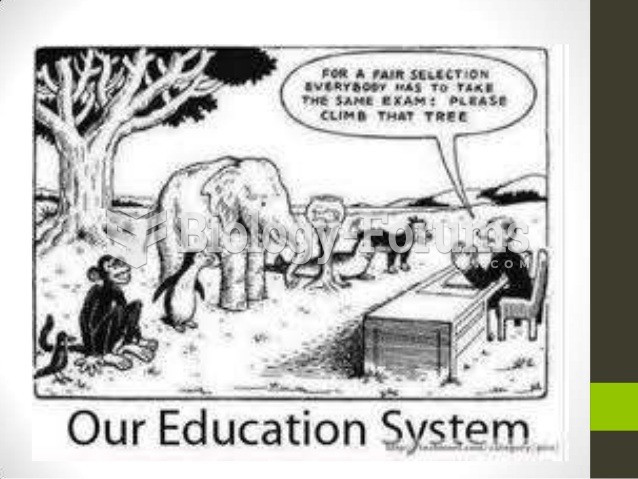|
|
|
In 2012, nearly 24 milliion Americans, aged 12 and older, had abused an illicit drug, according to the National Institute on Drug Abuse (NIDA).
Your skin wrinkles if you stay in the bathtub a long time because the outermost layer of skin (which consists of dead keratin) swells when it absorbs water. It is tightly attached to the skin below it, so it compensates for the increased area by wrinkling. This happens to the hands and feet because they have the thickest layer of dead keratin cells.
Increased intake of vitamin D has been shown to reduce fractures up to 25% in older people.
During pregnancy, a woman is more likely to experience bleeding gums and nosebleeds caused by hormonal changes that increase blood flow to the mouth and nose.
Human kidneys will clean about 1 million gallons of blood in an average lifetime.
 A photograph of a woman with exophthalmos. This condition is associated with hypersecretion of the t
A photograph of a woman with exophthalmos. This condition is associated with hypersecretion of the t
 Endocarditis. The human heart has been sectioned to reveal the left ventricle and origin of the aort
Endocarditis. The human heart has been sectioned to reveal the left ventricle and origin of the aort





